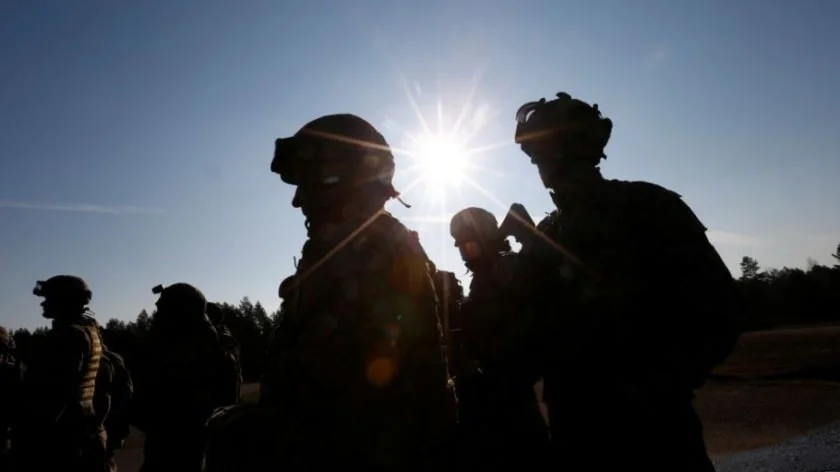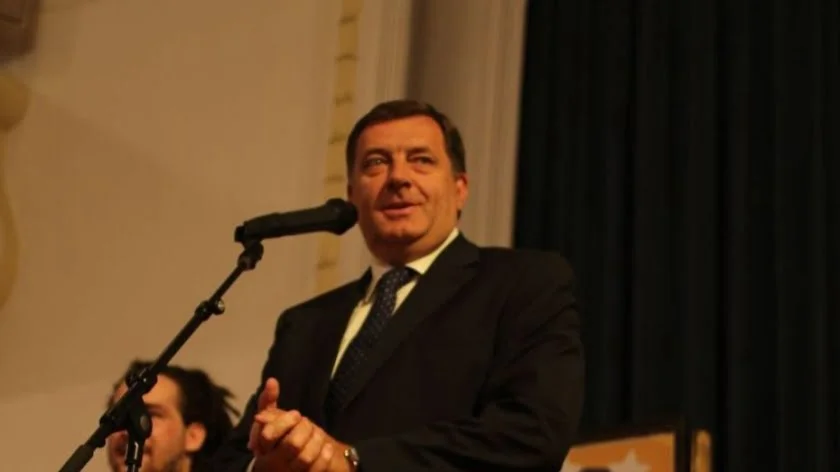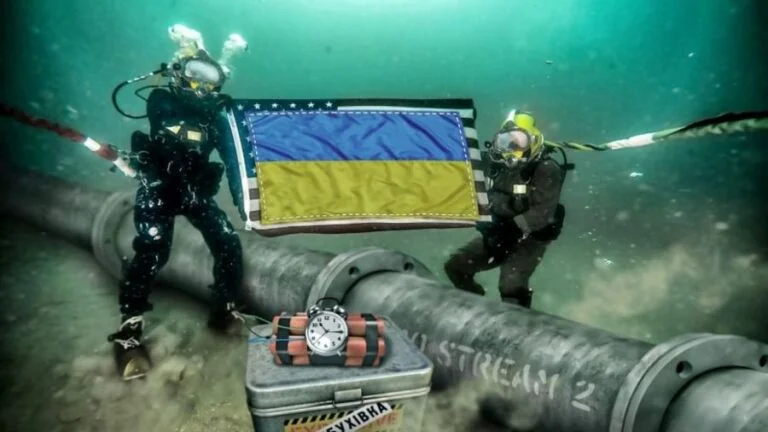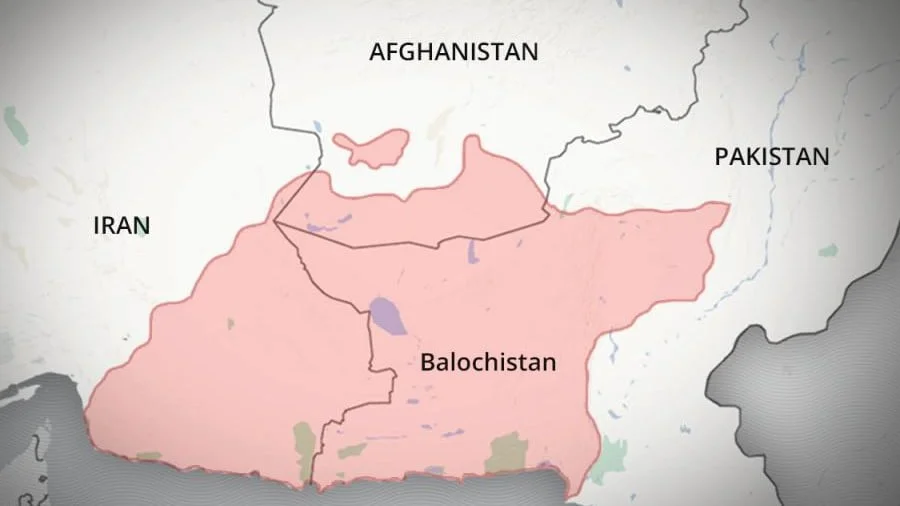America the Terrified: What Makes This Superpower So Sensitive?
They want to meet me not because I’m Mike from Kansas, because I represent the greatest nation in the history of civilization.
I want everyone to be reminded that America remains the world’s leading light of humanitarian goodness as well amidst this global pandemic.
…no greater privilege and no greater honour than serving as the commander in chief of the greatest military in the history of the world.
One of the curiosities about the United States is that, on the one hand, Americans are forever boasting about how powerful, how democratic and altogether wonderful their country is while, on the other hand, they are receptive to assertions that this mightiness and excellence is on the brink of disappearing. It’s a very peculiar state of affairs probably best left to psychiatrists to ponder. We laypeople are left wondering: has there ever been so frightened a superpower? So mighty and all about to be lost.
Three years of Trump have destroyed its alliances
The United States is the principal member of NATO – “the greatest alliance the world has ever known“. Its flacks sang its praises on its 70th birthday: greatest ever said Poland’s President, essential for world peace, stronger than ever and so on. And yet, a mere three years of President Trump has put it at the gates of death if not already killed it. “The Atlantic alliance as we know it is dead“. Or perhaps not dead quite yet: “an erosion of the foundations of the political system that defines — and protects — the modern world“; “The result could be nothing less than the fracturing of the Western alliance“.
It is not my purpose to discuss whether Trump is trying to kill the alliances – indeed, I suspect that he may be. The point is the assertion, apparently to be taken with a straight face, that this 70-year old alliance, the keystone of an interlocking system of alliances and relations centred on the United States, can be fatally weakened so quickly by one man. Even if that man be President of the principal member.
Three years of Trump have destroyed its democracy
The United States in 2016 was “the greatest democracy in the world” but just a bit of Trump and it’s fading fast. “Trump is a Frankenstein’s monster of past presidents’ worst attributes” chides someone worrying that Trump will destroy the presidency (but fortunately we have “esteemed former FBI director Robert Mueller” to redress the balance). Some now-forgotten statements were evidence of candidate Trump’s anti-American values. “On Inauguration Day, the president seemed poised to destroy American democracy” and the author lists people and institutions preventing him from doing so; some haven’t worn well: James Comey (Russia!), GCHQ (Russia!), Russiagate reporters (Russia!), the intelligence community (Russia!), Susan Rice (Russia!), Adam Schiff (Russia!). In fact, a little bit of Trump has ruined lots of things: “A List Of Everything Donald Trump Has Ruined This Year, From Retweets To The Solar Eclipse“. But, as the Russia story sinks, COVID-19 rises to give Trump the chance to express his inner fascist.
The American political system is more than two centuries old; it has gone through a lot; it has had many mediocre presidents and survived them. But, apparently, Trump is just too much. Again we see the “greatest” weakened quickly and easily.
Its elections are at the mercy of foreign enemies
To many non-Americans, its electoral system – registration, voting machines, Electoral College – is pretty arcane. Especially since they learned of the epistemological problems of “hanging chads“. But to Americans it’s theirs and they’re used to it. But suddenly, it’s at jeopardy in some undefined way. Did the Russians actually change the result of the vote? No evidence that it did. Hard to say. No evidence they changed votes but they tried to interfere. No, it’s “undeniable” that they affected it. How did they affect it? Mueller showed how (another one that isn’t wearing well). By “sowing confusion” or “discord” or something. But maybe they did swing it: “targeted cyberattacks by hackers and trolls were decisive“. Somebody thinks Putin thinks they did. Anyway, Trump is his “puppet” and is doing Putin’s bidding. “Mueller Exposes Putin’s Hold Over U.S. President Trump“.
Next time it will be worse. “Putin helped Trump in 2016. What is he planning for 2020?” “Facebook: Russian trolls are back. And they’re here to meddle with 2020“. “Putin developing fake videos to foment 2020 election chaos: ‘It’s going to destroy lives’“. But not alone, this time: “Chinese Regime Bigger Threat to U.S. Elections Than Russia, Barr Says“. The Russian sowing machine is joined by the Chinese one. Poor Americans: duped so easily by so little – Putin weaponises everything: information, culture, vaccines and many more. How can an electorate bamboozled by Putin’s weaponisation of Pokemon Go and mesmerised by cute puppies, even though they come from the country that is “#1 in Education Rankings”, possibly be expected to exercise their franchise? Don’t ask someone in the line at Starbucks – Putin’s unwitting agents are everywhere. Childrens’ cartoons are one of his weapons to take over America minds.
American democracy, so strong, so long, so flimsy.
Freedom of speech is under attack
“But saying what you like is more accepted in the United States than anywhere else, according to recent research. Americans take great pride in the First Amendment and often argue that it gives free speech greater protection than in any other democracy. The now-crumbling Russiagate nonsense spawned an entire industry warning about Russian “disinformation”. Not only were the cunning Russians creeping into our elections, but they were creeping into our brains too. Perhaps the weirdest example of how stunningly powerful Russian disinformation was supposed to be is shown in the intelligence report on the supposed Russian involvement in the election: nearly half the space was devoted to a four-year old rant about RT. RT? Its budget is a mere fraction of the West’s media outlets and there is nothing to suggest it has much of an audience. It is, in fact, Americans talking about America in America; sure it’s propaganda but it’s a tiny baby next to the BBC, CNN and so on. Nonetheless: “Deeply divided and in the grip of partisan passions, U.S. society is slipping into a quagmire of Russian disinformation in which the Putin regime will find it very easy to create reality and destroy facts.” “The Threat of Fake News to Our Democracy” “China Launches a Fake News Campaign to Blame the U.S. for Coronavirus” “Cyber Warfare: The Threat From Nation States”
Something has to be done about the threat – “Existential threat“. Have to stop it on social media. Discussors in the NYT suggest how. Disinterested people like the Atlantic Council must take charge to help social media use “community standards”. So goodbye to the idea of an informed citizenry free to hear all points of view; the only way to defend freedom against this mighty Russian assault is to become subjects told what they may and may not see. It is striking that in the Cold War the Soviets blocked Western media but the West didn’t bother to block the Soviets. The present reversal tells you a lot about who’s more truthful, doesn’t it?
So little old RT blew up one of the great prides of American democracy that had survived wars and all sorts of crises. And so quickly, too
Its military power is about to disappear
And finally we come to the “greatest military in the history of the world” aka “the best-trained, best-equipped and strongest military the world has ever known“. The USA spends far more than any other country – about a third of the world total in fact. It has 800 (or is it a thousand?) bases around the world; operates more fleet aircraft carriers than everybody else. Never lost a war (well Vietnam but, insisted Obama, “you won every major battle of that war. Every single one.”) The USA is the “ultimate military superpower“; it believes itself capable of “full-spectrum dominance“. The United States itself is as securely protected by geography as can be imagined – barring nuclear weapons, no power can or could threaten it. It is as secure as can be.
But so weak. A little decision by an agency few have heard of means Chinese dominance of future high technology. Space cyberwarfare? You can pretty well forget about that particular “spectrum”. Its military edge has “eroded to a dangerous degree” “in every domain of warfare”. “Our military is becoming outdated.” Could lose, would lose against China, could lose against Iran, or Russia, the military is in crisis, “no longer clearly superior“.
And so the world’s mightiest military is consumed with fear and doubt.
* * *
What are we outside observers to make of this alternating boasting and fearfulness?
I’m well aware of the motives. Saying that Trump is destroying everything and must be removed shows the demented state of politics of the USA; as Russiagate falls apart, they have to shout louder. Ranting about RT prevents admitting that the truthful part of the propaganda divide is on the other side. Shutting down discussion makes it easier to lie and cheat and steal. Shrieking that the USA is about to lose its military dominance is shilling for the weapons makers who pay you. All that is obvious.
But that’s not what fascinates me. A truly confident country would laugh at the suggestion that it’s on the edge of the precipice; a country that thinks it is, is not confident in itself. The “American Dream” has gone adrift in food stamps, opioids, prisons, the gig economy, super-rich. Recall Obama’s winning slogan “Hope and Change”; recall Sanders’ speeches about those left out of The Dream; recall Trump’s winning slogan: “Make America Great Again“. All these point to a gut knowledge of coming doom that cannot be eased by boasting.
The co-existence of blustering and tremulousness not only reveals an apprehension of failure but, in a country with the destructive power of the USA, it is frightening for the rest of us.
By Patrick Armstrong
Source: Strategic Culture







